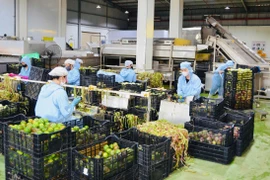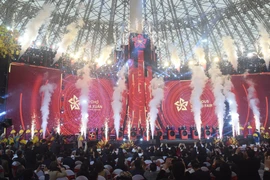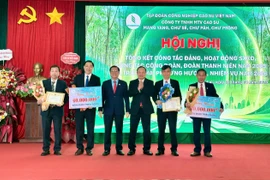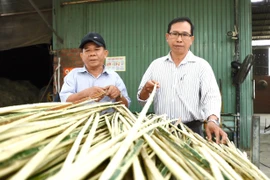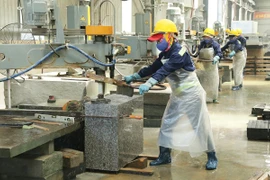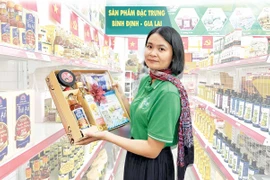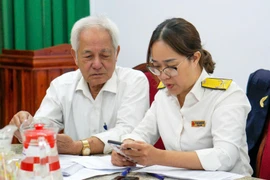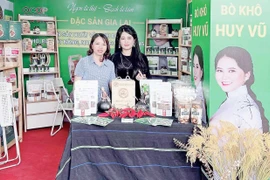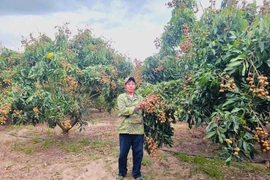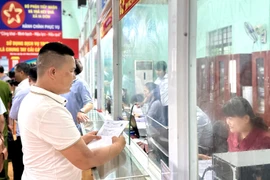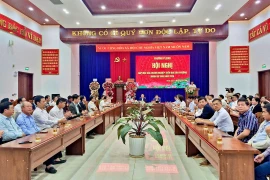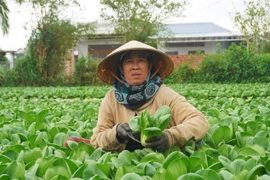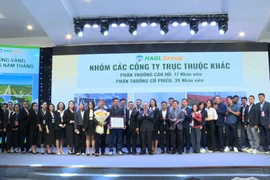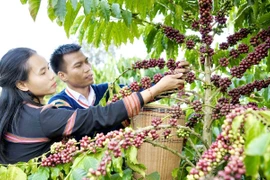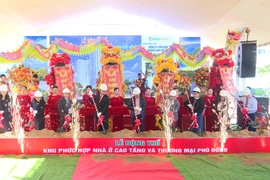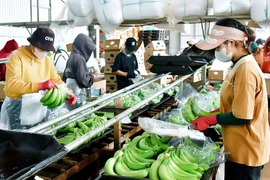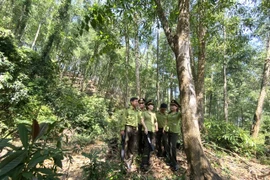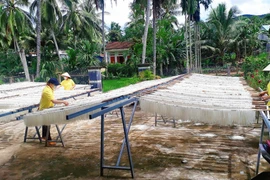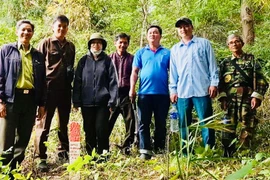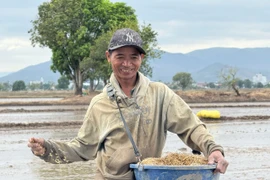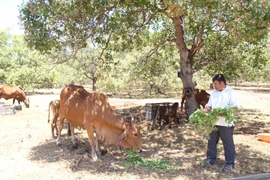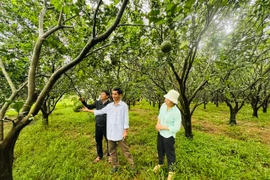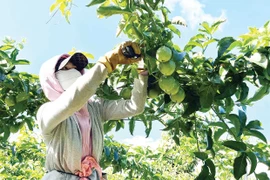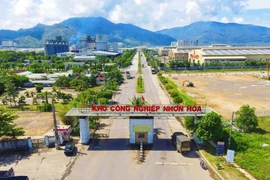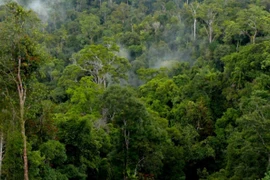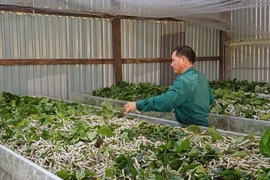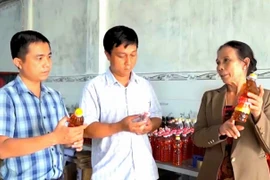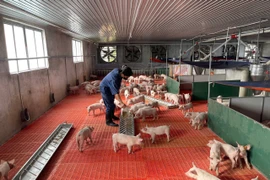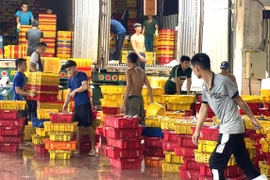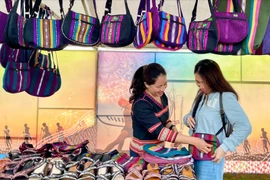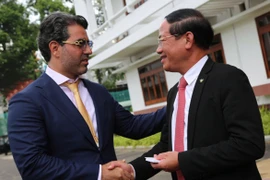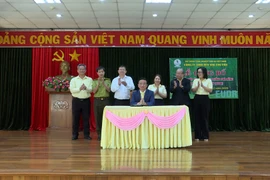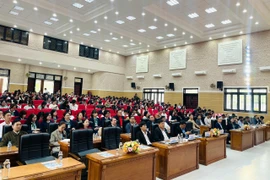From cultivation areas to packaging facilities and traceability systems, local businesses are aligning with global standards to enhance competitiveness.
With support from provincial authorities, cooperatives, and enterprises, Gia Lai is building a sustainable production ecosystem that raises the brand value of its agricultural products while facilitating official export channels.
Standardizing cultivation areas for export compliance
Many Vietnamese businesses have struggled to export to China due to inadequate management of cultivation areas and weak traceability systems. Nguyen Thi Diem Hang, Vice Chairwoman of the Vietnam Agricultural Business Council and General Director of Vinanutrifood Binh Dinh, said: “The biggest weakness at present is that businesses have not effectively managed their raw material areas. Many shipments encounter obstacles at customs because they lack traceability and cultivation area codes.”

Gia Lai, with nearly 977,000 hectares of agricultural land—including 753,000 hectares of fertile basalt and red-yellow soils—is ideally positioned for high-value crops such as coffee, bananas, passion fruit, and durian. Key statistics highlight the province’s export potential:
* Coffee: 107,000 ha, 333,256 tons (56,691 ha certified organic, Rainforest Alliance, 4C)
* Bananas: 7,850 ha, 316,220 tons (3,792 ha certified GlobalGAP
* Passion Fruit: 5,650 ha, 213,150 tons (1,153 ha certified VietGAP)
* Durian: 8,500 ha, 57,725 tons (1,082 ha certified GlobalGAP, 741 ha certified VietGAP)
To date, Gia Lai has issued 248 cultivation area codes and certified 40 packing facilities, with a combined capacity of 1,800 tons per day. These measures reduce reliance on informal export routes and pave the way for official trade.
Lu Le Phuong, Deputy Director of Beibu Gulf Investment Group in Guangxi, China, noted: “Chinese enterprises are very interested in products with transparent origins. If these requirements are met, Gia Lai’s agricultural products can significantly expand in the Chinese market.”
Business initiative and government support
Local enterprises are proactively promoting their products abroad. VCU Joint Stock Company from Chu Prong commune participated in CAFEEX Shenzhen 2025, one of China’s largest coffee trade fairs held from August 22–24. The company showcased Gia Lai coffee, connecting with producers, roasters, and major coffee chains from China and beyond.
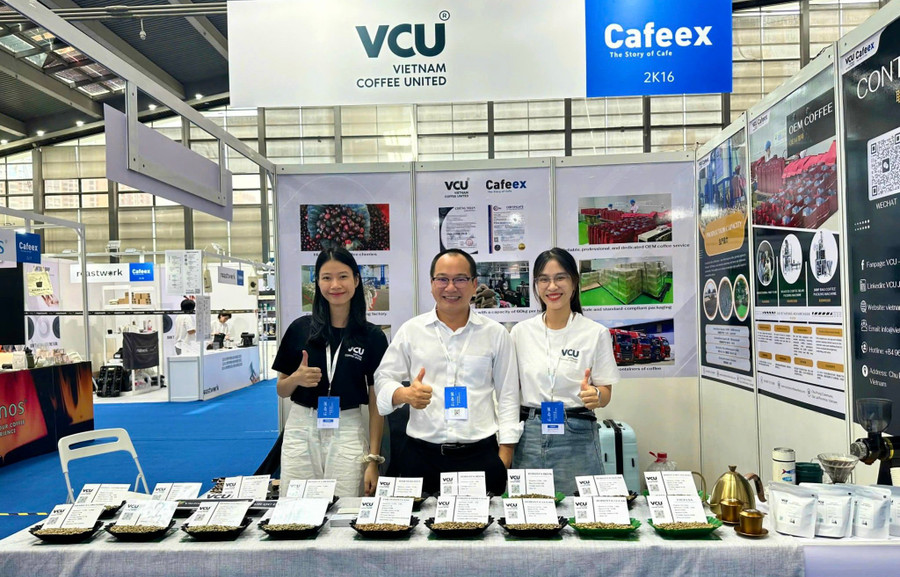
Nguyen Tien Dinh, Director of VCU, said: “To export officially to China, companies must demonstrate clear origins and transparent documentation, such as GACC certification. VCU has obtained certification for roasted coffee beans and is completing the process for green coffee beans. This ensures compliance with stringent standards and helps our products reach international consumers.”
Trade fairs also help local businesses track global trends and meet the diverse quality, packaging, and traceability requirements of the Chinese market.
Provincial authorities are accelerating support to facilitate exports. Duong Minh Duc, Director of the Department of Industry and Trade, highlighted initiatives to expedite the issuance of cultivation area codes and packing facility certifications.
At a recent Trade Promotion Conference on August 18 in Pleiku, Standing Vice Chairman Nguyen Tuan Thanh stressed: “China is one of Vietnam’s largest trading partners, with two-way trade reaching approximately USD 171 billion in 2024. For Gia Lai, this is a key market for agricultural and forestry products, but it imposes strict requirements on quality and origin. The province will focus on standardizing cultivation areas, promoting deep processing, and implementing a ‘one-stop’ support mechanism from production to transaction.”
Gia Lai’s combined efforts of standardization, business initiative, and government backing aim to enhance the global presence of its agricultural products while ensuring compliance with international trade requirements.










